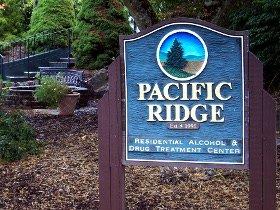Call Us For Easy
Confidential Assistance
503-506-0101
It only takes 5 minutes to get started
Tips for Caring for Yourself During Addiction Recovery
Posted on: October 10th, 2018 by Pacific Ridge
 When you start on the road to recovery from addiction, hopefully you will have a strong support system. Having people around you who appreciate your efforts and cheer you on can be wonderful. However, self-love is just as important, and self-care is a crucial part of your recovery. Consider these self-care tips to help you stay strong in your recovery.
When you start on the road to recovery from addiction, hopefully you will have a strong support system. Having people around you who appreciate your efforts and cheer you on can be wonderful. However, self-love is just as important, and self-care is a crucial part of your recovery. Consider these self-care tips to help you stay strong in your recovery.
Indulge in Non-Addictive Pleasures Every Day
Close your eyes and think about the little things that you find pleasurable in life. It can be something as small as dipping your toes in dewy grass. Make a list of these pleasures. Then make it a priority to treat yourself every day. Most people are conditioned to make treats an occasional thing, but harmless ones can be enjoyed often.
Also, daily luxuries can remind you of all the joys of a life that’s well-lived in recovery. Whether it’s a bubble bath, an at-home facial treatment from a packet, or simply painting your own fingernails, try to treat yourself to something that helps you feel good about yourself every day. When you feel good about yourself, recovery is easier.
Set Boundaries According to Your Needs
Some people hate the idea of setting boundaries. It may feel awkward or even mean at first, but setting boundaries is ultimately one of the kindest things that you can do for yourself and those you love. When you set a boundary, you establish what you need in the relationship to stay well. Boundaries help relationships thrive and ensure that they’re sustainable during your recovery.
As you recover from addiction, you will likely find that you need to re-establish boundaries in all of your relationships. This can be hard for close familial relationship. For example, your spouse may expect you to do certain things that you’ve always done, but you may not be able to do them while you are in recovery.
Having a talk with your spouse about boundaries and what you may need to change about the relationship can be an important part of your recovery. With a relationship that close, the boundaries may change again over time, but it’s important to ask for what you need to focus on your recovery. If that means that your entire family has to make changes, that’s okay.
You don’t always have to announce your boundaries to people, either. For example, if you have a family member who is critical of your recovery, you may simply stop sharing that part of your life with them. You don’t have to announce this choice. You may simply and firmly state that you don’t want to talk about your recovery right now when they ask questions about it.
Practice Asking for Help
Asking for help can be difficult for many people. However, needing help is simply a part of being human. There is no shame in it. If you find that you worry about asking other people for help, talk to them about it. Tell your spouse about your fears, then ask them to allow you to practice asking for help before you are in a crisis mode.
Next, start asking for help with small things. For example, you may not normally call your spouse if you are having a mildly bad day and need a little cheering up. However, when you practice asking for help, try to reach out over those smaller things. You may be surprised how easy it feels when you try it a few times. It can make asking for help during a crisis so much easier.
Try Writing in a Diary
Journaling can be a great habit that can complement the work you do in therapy and in an addiction treatment center. If you haven’t journaled before, start small with just a page per day. Write about anything that’s on your mind, and you may soon find that you’re filling pages as you express your thoughts and feelings.
Keeping a journal can also help you look back on your progress and see how far you’ve come in your recovery. The struggle to stay sober can get easier over time, and you’re likely to feel proud of yourself when you have a written account of all the progress you’ve made.
Start New, Healthy Habits
Old habits are undeniably hard to break, but starting new, healthy habits can help. As you work through your recovery, try to think about the things you genuinely enjoy doing. When life is joyful and doesn’t inspire you to look for an escape, the addiction can seem far less appealing.
The new habits can be small in scope. If you skipped breakfast before, start eating a small, healthy breakfast to get your day started on a positive note. If you forced yourself to go to the gym before and didn’t like it, consider which forms of exercise you do like. If you enjoy dance instead, do that. Choose only those optional activities that you genuinely enjoy.
Finally, keep in mind that learning great self-care habits is a process. Nobody gets it perfect right away. Getting started on your recovery with a strong treatment plan is one of the best things you can do for yourself. Contact Pacific Ridge to speak to a caring staff member about our residential drug and alcohol addiction treatment that can help you get started on your recovery today.
Posted in Treatment
Recent Posts
Are you looking for help?
Pacific Ridge is a residential drug and alcohol treatment facility about an hour from Portland, Oregon, on the outskirts of Salem. We’re here to help individuals and families begin the road to recovery from addiction. Our clients receive quality care without paying the high price of a hospital. Most of our clients come from Oregon and Washington, with many coming from other states as well.
Pacific Ridge is a private alcohol and drug rehab. To be a part of our treatment program, the client must voluntarily agree to cooperate with treatment. Most intakes can be scheduled within 24-48 hours.
Pacific Ridge is a State-licensed detox and residential treatment program for both alcohol and drugs. We provide individualized treatment options, work closely with managed care organizations, and maintain contracts with most insurance companies.

Quick links
Recent Posts
Contact Us
Pacific Ridge- 1587 Pacific Ridge Ln SE
Jefferson, OR 97352 - Email:
[email protected] - Phone:
503-506-0101 - Fax:
503-581-8292
- Copyright © 2025 Pacific Ridge - All Rights Reserved. Web Design & SEO by Lithium
- Follow us on

